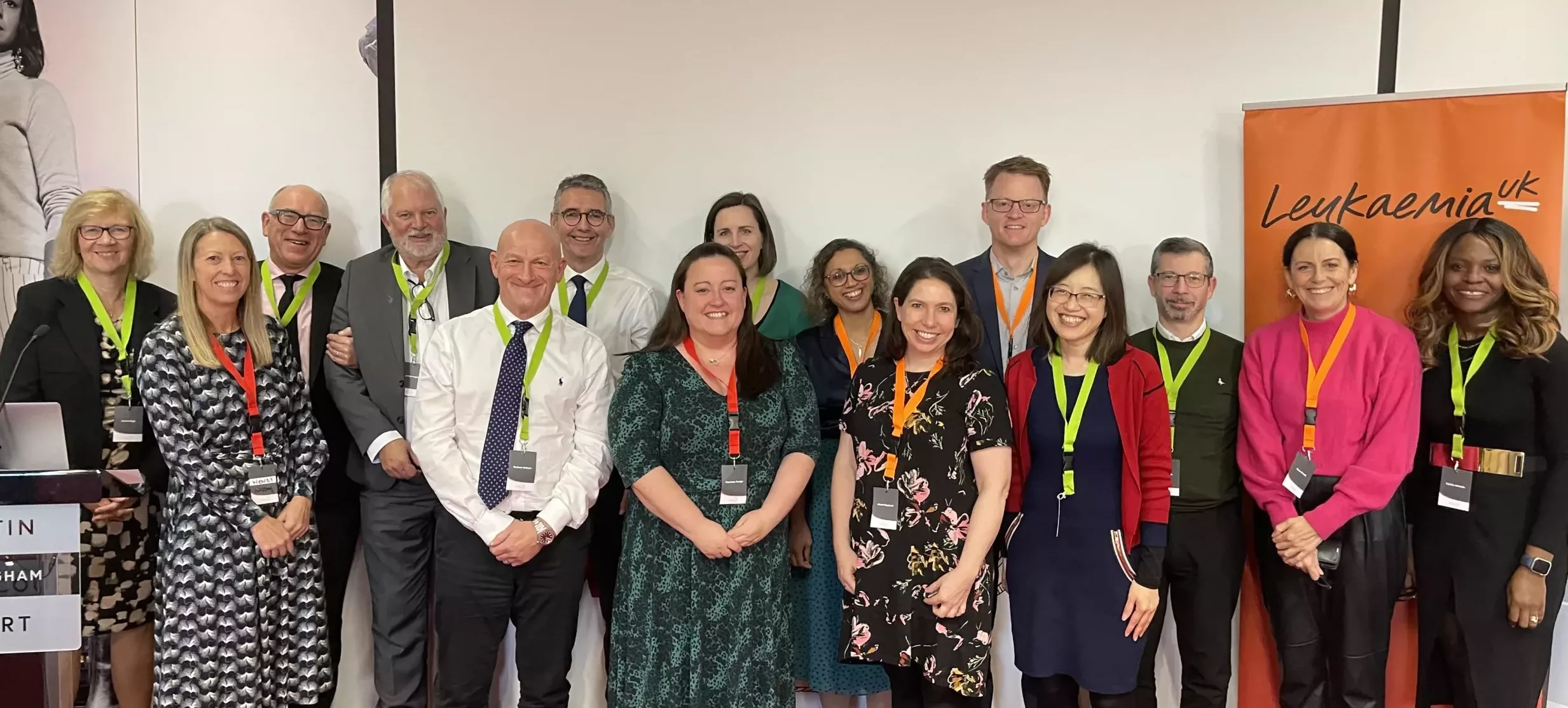
06 Dec 2023
DIDACT: a stepping stone towards a brighter and healthier future
Last week was the first of the DIDACT Foundation’s clinical trials training days for aspiring trial leaders. But what is DIDACT? What does the training hope to achieve? And how is Leukaemia UK involved? We spoke to the DIDACT team to find out more.
What is the DIDACT Foundation?
The DIDACT Foundation is a beacon of hope in the realm of blood cancer research and treatment. This charitable organisation is dedicated to advancing the understanding and treatment of blood cancers, such as leukaemia, through education, training, and support for healthcare professionals involved in clinical trials. They are working behind the scenes to bring about breakthroughs in the fight against blood cancers.
What is the aim of the clinical trials training days?
Imagine a group of passionate individuals gathered in a room, fuelled by a shared commitment to combat blood cancers. This is the essence of the clinical trials training days organised by the DIDACT Foundation. The aim is straightforward yet powerful: to equip healthcare professionals with the knowledge, skills, and confidence they need to conduct clinical trials effectively.
Clinical trials are vital because they are where potential new treatments are assessed to see if they are safe and work in patients. The training days offered by the DIDACT Foundation serve as a crucial bridge, connecting eager clinical minds with the tools and insights necessary to navigate the intricate world of blood cancer clinical trials. These sessions empower healthcare professionals with the expertise needed to conduct trials safely, ethically, and with the utmost precision.
Why are blood cancer clinical trials so important?
Blood cancer clinical trials are the lifeblood of progress in the fight against diseases like leukaemia. They are the testing grounds where ground-breaking treatments are born and refined. Think of clinical trials as the engines propelling us forward on the journey to better, more effective treatments.
Participating in a clinical trial offers patients access to very new treatments that may not be available through standard care. These trials not only push the boundaries of medical knowledge but also pave the way for better treatments and improved health and, ultimately, more lives saved. In essence, each clinical trial is a stepping stone toward a brighter and healthier future for those affected by blood cancers, or any other disease.
How is Leukaemia UK involved?
Leukaemia UK is a crucial partner in the mission of the DIDACT Foundation. They play a vital role in supporting these clinical trials training days, ensuring that the educational initiatives reach as many healthcare professionals as possible. By joining forces, the DIDACT Foundation and Leukaemia UK form a dynamic partnership working hand in hand to empower healthcare heroes in the pursuit of better treatments and, ultimately, cures for blood cancers.
Leukaemia UK’s involvement doesn’t stop at training days. They also contribute invaluable support in various forms, ranging from financial assistance for research projects to providing a network of experts and resources. Together, the DIDACT Foundation and Leukaemia UK create a collaborative force, amplifying the impact of their individual efforts in the battle against blood cancers.
What other support is available via the DIDACT Foundation for those working in clinical trials?
The DIDACT Foundation is also focussed on setting up and delivering clinical trials for patients with blood cancers and acts as sponsor for these trials, with the aim of directly impacting and improving patient care. This is being done through Accelerating Clinical Trials (ACT), a clinical trials delivery organisation that supports the IMPACT Network of bone marrow transplant clinical trials and TAP Network of blood cancer trials. These are UK-wide programmes, with IMPACT and /or TAP centres across all 4 UK nations to enable more patients to get new treatments closer to home. Furthermore, the DIDACT Foundation is developing a website to provide information about clinical trials more generally, including information about designing and running clinical trials. The DIDACT Foundation is also committed to publishing the results of clinical trials and any associated research for the benefit of the public.
Related posts
15 June 2018
MP opens Leukaemia UK Ambulatory Care Unit
A unit funded by Leukaemia UK which allows people with blood cancer to have stem cell transplants as out-patients has been officially opened by its first patient, Nick Boles MP
4 April 2022
Leukaemia UK launches search for five new talented Trustees
We are looking for a talented and diverse set of Trustees to join our Board, and help guide the charity as we embark on an ambitious new strategy to accelerate progress in leukaemia research to stop leukaemia devastating lives.
31 October 2022
Leukaemia UK appoints new Director of Communications job share from Shelter to lead their ambitious strategy
Blood cancer research charity, Leukaemia UK, has hired Anna Wilson and Lizzie Afonso from housing and homelessness charity, Shelter, to job-share its new Communications Director role. This is the first…
5 March 2025
Leukaemia UK chosen to be featured charity partner of Scrap Car Comparison
Leukaemia UK will be the featured charity partner of Scrap Car Comparison’s ‘Donate a Car’ scheme this March. The scheme will help raise money to stop leukaemia devastating lives by…